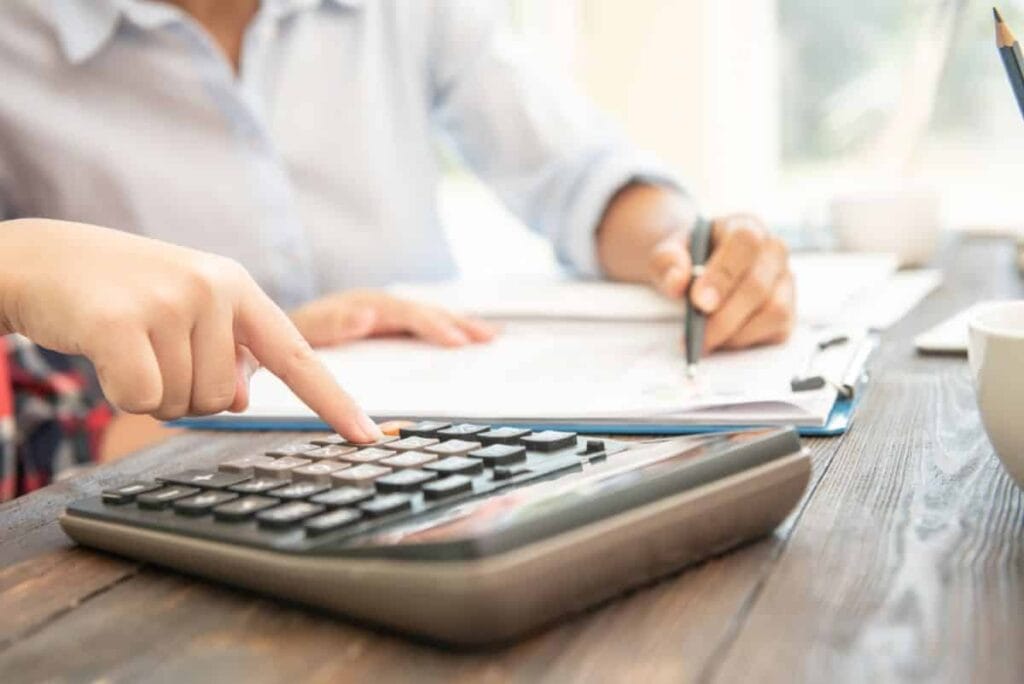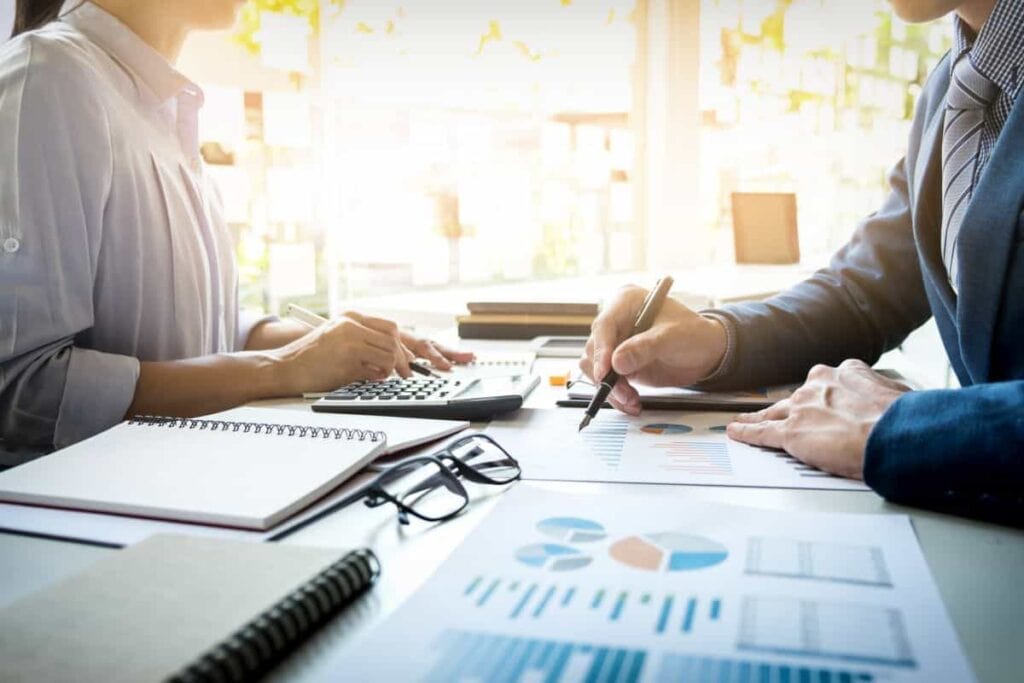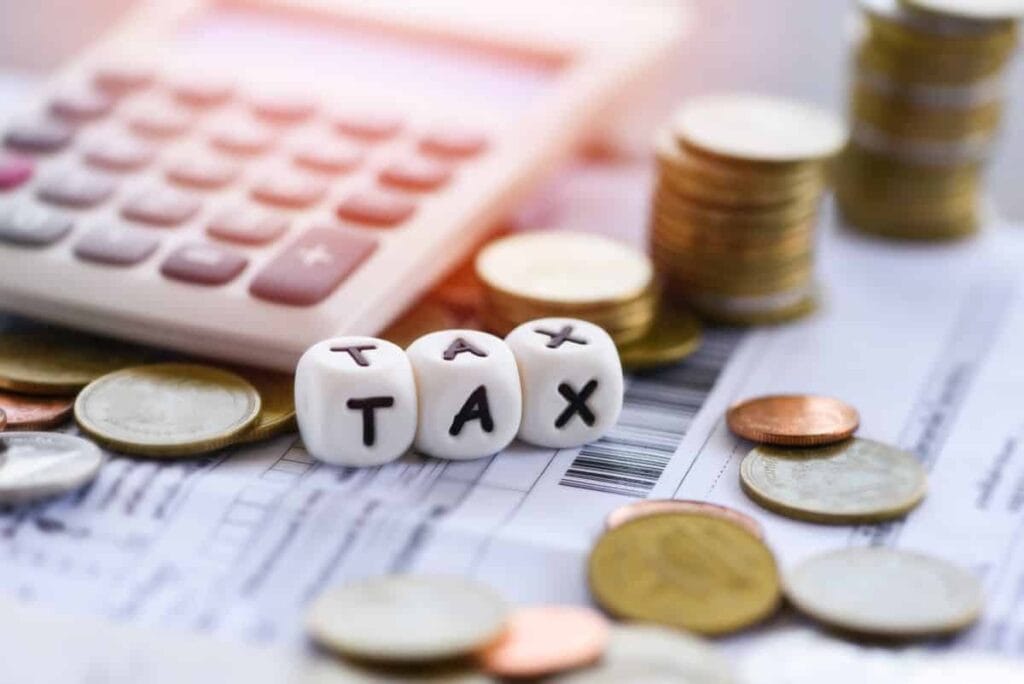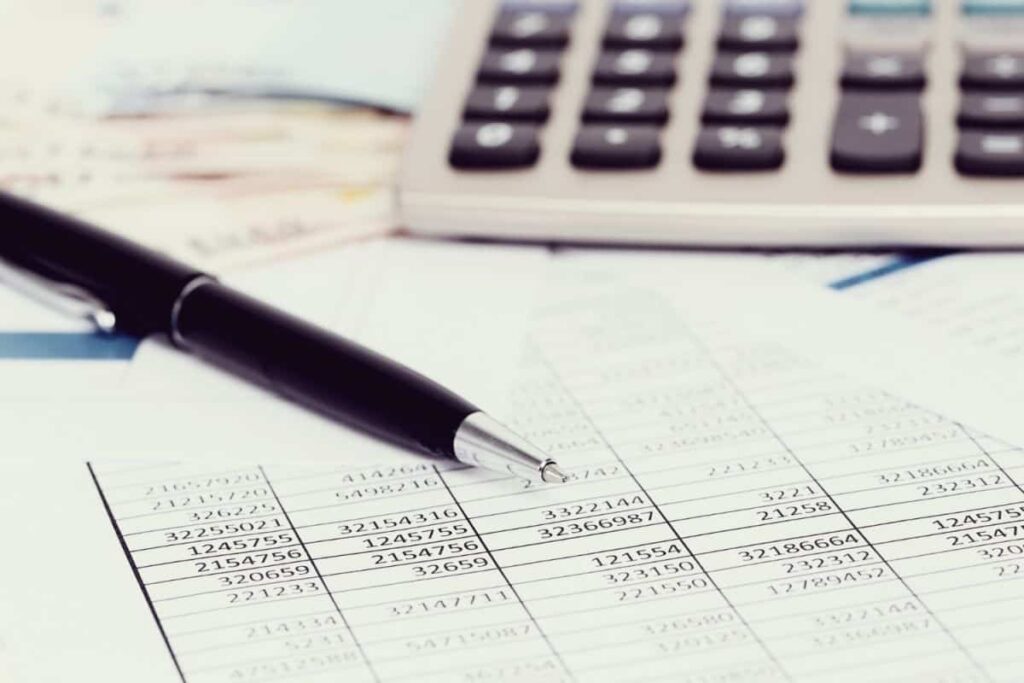Australian Taxation Law For Small Businesses
The Australian tax code for small businesses is notoriously difficult to navigate. Therefore, in order to ensure that their companies are in accordance with the law, business owners need to be informed of the necessary requirements and laws.
This article offers a high-level summary of the most important aspects of taxation that small businesses ought to be familiar with. We are going to have a conversation about important topics like income tax, GST, depreciation, and capital allowances. When business owners have a solid grasp of these principles, they are better equipped to make educated choices regarding the operations and structures of their companies.
Small businesses in Australia are subject to an intricate web of taxation laws and regulations, which they are required to comply with. Understanding the fundamentals is essential if you want to get the most out of your company, despite the fact that doing so might be intimidating.
In this piece, we will provide an outline of the most important taxes topics that small businesses need to be familiar with. In addition to that, we will offer some helpful advice on how to maintain compliance. Therefore, if you are seeking for an introduction to the tax law in Australia, continue reading!
Having a commercial presence in Australia can be a challenging endeavor, particularly in terms of the country’s tax system. Nevertheless, in order to make the process run as smoothly as possible, there are a few essential things that small businesses need to be aware of. In this piece, we will provide an overview of some of the most significant taxation rules that apply to small enterprises in Australia.
If you are the owner of a small business in Australia, it is imperative that you have a solid understanding of the tax regulations that are relevant to your situation. An summary of the most significant information that you need to know may be found further on in this page. We’ll discuss things like income tax, the goods and services tax (GST), and depreciation. If you have a working knowledge of the fundamentals of Australian taxes law, you may ensure that you are running your company in accordance with the rules and regulations.
When it comes to the taxation laws that apply to small businesses in Australia, there is a lot of information to take in. But don’t worry, because I’ve got you covered with this helpful tutorial! In this guide, we will walk you through all you need to know about the business taxes in Australia, including which forms you need to fill out and when those forms need to be submitted.
In addition to this, we will discuss some common deductions that can be claimed by small enterprises. This book will provide you with the information you need, regardless of whether you are just starting out or have been running your business for some time.
In Australia, there are a large number of small businesses, and a significant number of those enterprises are uninformed of the tax law in Australia that pertains to them.
Because of what you will learn in this blog article, you will have a better understanding of the fundamentals of Australian small business taxation, which will make it easier for you to manage your finances and remain in compliance with the law. We will discuss a wide range of subjects, including but not limited to income tax, GST, deductions and exemptions, and more. Read on for some useful advice, whether you’ve recently started your own company or are an experienced entrepreneur looking to expand your knowledge base.
You have a responsibility to educate yourself on the Australian tax law that pertains to your situation. This article will provide a summary of the most significant facets of the legislation that you should be familiar with.
In this section, we will discuss the income tax, the Goods and Services Tax (GST), and the corporation tax, in addition to a few other taxes that can be relevant to your organization. Continue reading for some information that, whether you’re just getting started or you’ve already got a small business up and going, could end up saving you some cash!
Small businesses in Australia are subjected to a significant amount of red tape, but, happily, taxation law is one area that is characterized by a high degree of specialization. This article will provide an overview of the fundamentals of Australian tax law as they relate to the operation of smaller enterprises in Australia.
We are going to go over the things that you need to do in order to stay on the good side of the taxman and the ways in which you can maximize the tax deductions that are available to your company. Read on for some helpful information regarding the taxation of small businesses in Australia, regardless of whether you are just starting out or have been operating your company for some time.
Let’s get started!
Tax Essentials For Small Businesses
The types of taxes that you are required to register for are determined by the kind of business that you are running. There are some that are universally applicable, while others may be obligatory based on the size, nature, and annual revenue of the company. Some are voluntary, but they could make filing your taxes feel less overwhelming.
Find out how to register your company for taxes, what records you are required to keep, what deductions you could be eligible for, the goods and services tax, business activity statements, and the tax responsibilities you have for your employees.
1. The requirements necessary to get your company tax-exempt status
Tax File Number (TFN)
Sole proprietors are permitted to utilize their own individual TFNs;
Separate TFNs are necessary for legal entities such as partnerships, companies, and trusts.
Australian Business Number (ABN)
- Utilized for a variety of fiscal and other commercial purposes;
- Required for submitting bills to customers for a business. In the event that you do not submit an ABN, tax will be withheld from all payments at the highest marginal tax rate.
The registration for the Goods and Services Tax (GST)
- Obligatory if your annual revenue is estimated to be at least $75,000 or if it already exceeds that amount;
- Regardless of the size of your overall GST revenue, one of the components of your business is the provision of taxi service to customers in exchange for a fare.
Withholding on a pay-as-you-go (PAYG) basis
- Essential if you run a business with employees;
- Required if you sign into voluntary agreements with other workers, such as contractors, to withhold money from the payments you make to them;
- Required in the event that you will be making payments to companies that do not provide their ABN.
Fringe benefits tax (FBT)
- Is required to be paid by employers for benefits that have been provided to employees (or associates of employees, such as family members) in lieu of compensation or wages;
- Only necessary if you intend to provide supplemental benefits to your staff members.
Payroll tax
- If the sum of your salaries in Australia is greater than the amount that is considered exempt from tax in your state or territory, then you will be required to pay payroll tax (tax-free thresholds vary between states and territories)
2. Keeping records
You are required by the law to maintain written documentation for a period of five years beginning on the date that you submit your tax return.
The following are examples of documents that you should keep:
- payments that have been made to you;
- Expenses that are directly tied to the payments that you have received;
- documents relating to the acquisition of assets, such as shares or an investment property;
- information regarding any gifts, donations, or contributions that would be eligible for a tax deduction;
- Employee and contractor records, including copies of any contracts, copies of any TFN declarations, copies of payments, and so forth.
3. Make your deductions
- You are eligible to receive a tax deduction for the vast majority of the costs you incurred while operating a business;
- You must have already spent the money or made a commitment to spend it;
- The cost must have a discernible bearing on the operation of your business.
- Several expenses you can’t claim include:
- Expenses for personal and family matters;
- The majority of a company’s capital expenses, which are incurred when the company expands, replaces, or improves its operations;
- The majority of expenses incurred prior to the launch of the firm;
- If you are planning on making big expenditures, you should talk to your tax consultant before you commit to making those expenditures so that you can understand any potential tax ramifications.
4. Tax breaks for companies that are quite small
- Small enterprises that have combined annual revenue of less than $10 million are eligible to apply;
- Simplified rules for calculating depreciation, which may include an immediate write-off for depreciating assets with a value of $20,000 or less;
- Immediate deductions for expenses that have been pre-paid if the service for which you are paying will be finished within the next year and will bring the following fiscal year to a close;
- streamlined regulations governing trading stocks and record-keeping;
Concessions on the amount of capital gains tax (CGT) that must be paid on assets that are utilised in the operation of qualifying enterprises. - Exemption from the fringe benefits tax (FBT) for employee parking, provided that the employee satisfies the eligibility requirements;
- PAYG instalment concession;
- able to make a claim for the offset against their income tax for small businesses
5. The GST and the BAS
- If your company is registered for the Goods and Services Tax (GST), you are required to collect GST on every taxable sale you make and remit the money to the ATO;
- When you make purchases of supplies for your company, you are typically eligible to make a claim for a refund of the GST that was included in the price of those products;
- At the conclusion of each Business Activity Statement (BAS) period, you are required to remit to the ATO the whole amount of GST that you have collected, less any GST credits;
- You can report your GST, PAYG instalments, withholding, and FBT instalments on the Business Activity Statement;
- The frequency of GST reporting and payment for small business entities will be determined by the amount of GST turnover and will either be quarterly or annual.
Why Your Retirement Savings Plan Is Crucial If You Own A Small Business

When you run a business as a sole proprietor, you are not only responsible for ensuring that it is profitable, but you are also accountable for ensuring that you will be well taken care of when you reach retirement age.
If you haven’t been paying your superannuation the attention it deserves, you might find that you don’t have enough money saved up to retire in luxury when you reach retirement age.
One of the most common blunders that people who run small businesses, especially sole proprietorships, make is that they do not see themselves as employees who are entitled to the same benefits they would receive if they worked for someone else.
It is never too late to begin planning for one’s future, which is a very fortunate fact.
The following is a list of the top reasons why making contributions to your superannuation account is smart from a financial perspective:
1. The self-assurance necessary to enjoy a comfortable retirement
If you run your firm as a sole proprietor, you are not required by law to make contributions to your retirement account. But if you don’t start thinking about the future you want right now, it’s not going to be simple to achieve the personal and professional financial goals you’ve set for yourself.
As a single proprietor, you have the choice of whether or not to make regular contributions to your superannuation account; however, doing so is strongly advised if you want your standard of living to remain stable after you stop working.
The Retirement Standard developed by the Association of Superannuation Funds of Australia (ASFA) estimates that those retiring alone will require an annual income of $43,601 on average in order to maintain their current standard of living throughout their golden years. In order to retire comfortably, a couple will require an annual savings amount of $61,522.
When you first start your own company, there are a lot of things to consider, and planning for your retirement might not be one of them right away. As a result of the high cost of living during retirement, it is essential to schedule some time as part of your business plan to organize your pension or another kind of retirement savings.
It is possible that having a conversation with your accountant or financial advisor in order to obtain the direction and help with the business that you require in order to get your superannuation contributions in order will determine whether or not you have a happy retirement.
2. Superannuation contributions are a small business tax write off
You might not have much of a nest egg to sing about when it comes to your retirement savings if you have a hard time setting money aside or if you have been reinvesting the profits of your small business to support the expansion of your company.
In spite of this, there are financial benefits to be gained in Australia by making contributions to your superannuation fund. When you file your business tax return, for instance, making payments into your superannuation account might be a more tax-efficient way to prepare for your retirement than just putting the same cash into a business savings account.
In the event that you make contributions, you might only be subject to the concessional contribution tax rate of 15 percent, depending on the contribution caps that are in place. This is typically a sizeable reduction from the standard tax rate applicable to small businesses.
Your contributions to your superannuation fund will be put aside until you reach retirement age, allowing you to save money even while you are still employed and benefit from a reduced tax rate.
3. Receive support from the government for your small business in addition to your own financial commitments
As a sole proprietorship, you could be qualified for financial aid and other benefits offered by the government to small businesses. You may still be qualified for the super co-contribution payment plan, even if you have a low to middling income. If this describes your situation, read on.
This means that the Government will contribute an additional amount to your superannuation account, up to a maximum value of $500, if your after-tax payments to your superannuation account are less than a specific threshold.
If you earned $44,564 and contributed $600 to your super fund during the FY21 tax year, for instance, you will be eligible to receive a co-contribution from the government of $300 into your super fund after you have submitted your tax return. When you take into account the possibility that this perk may be made accessible to you on an annual basis, you may find that it constitutes a major incentive.
Small Business Expenses
1. What Exactly Is an Operating Expense?
One way to think of it is as an expense that is typical and expected in the course of operating a firm. When an expense is considered required for a business, it indicates that it is shared by other traders in the same industry and that it is essential to the operation of the company. Without it, the owner of the firm would be unable to do the necessary tasks for their company.
The following are some examples of regular business expenses that may be recognizable to owners of smaller firms.
2. Different Categories of Company Expenses
Startup Expenses
These include any and all expenses incurred by you during the process of establishing a business, such as the following:
- licensing fees;
- Expenses related to advertising
- legal fees;
- supplies for the office;
- expenditures related to market research;
- The costs of accounting.
They also include all of the running expenses you acquire before the business starts operating, such as the cost of employee training and those that you use to carry out your research. For example, employee training costs and research costs are both included in this category.
Operating Expenses
These are the day-to-day expenses that a firm must pay in order to continue operating successfully. They are split up into two different buckets: operational and commission-based costs.
The first category includes all of the costs that are associated with managing and supervising the company. At the same time, the latter include any costs that are related to the promotion of the business, salaries, supplies, rent, utilities, maintenance, repair, automobile and gasoline expenses, and any and all other operating expenses.
Capital Expenses
When you purchase assets that have a useful life of more than a year, you will incur this expense. They consist of things like vehicles, equipment, books, patents, and furniture, among other things.
Prices Paid For Inventory
All of the direct and indirect costs that are connected with maintaining inventory are included here. In addition to it, they contain fees associated with taxes, storage, insurance, and shortages. Raw materials, work in progress, and finished goods are the three distinct sub-categories that make up an inventory structure.
3. Which Expenses of Your Small Business Are Tax Deductible?
It’s possible to deduct from your taxes any cost that can be justified as regular and essential to the operation of your company. Some of the costs associated with running a business are entirely deductible, while others can only be deducted to a certain extent.
This indicates that only a portion of the total cost can be deducted from one’s taxable income for tax purposes. The following items are all completely reimbursable for expenses incurred by small businesses:
- Costs related to accounting;
- paid memberships to publication organizations;
- Programs for the benefit of employees;
- Paying for office space;
- Costs associated with repairs and upkeep;
- Expenses related to advertising and marketing;
- Payment of Membership Dues;
- Wages that are paid to all workers under contract;
- Equipment rentals;
- Office supplies and expenditures;
- Expenses related to printing;
- Expenses related to utilities
- Interest that was paid
- Costs associated with ongoing education and professional development;
- Charges for the laundry;
- Legal expenses;
- Insurance expenditures;
In general, personal and capital expenses, as well as all of the overhead costs that are factored into the calculation of the cost of products sold, should be kept distinct from company expenses.
If a piece of capital expenditure costs the owner of a business less than $20,000, they are eligible to claim an instant deduction for it. This includes things like computers, plants, and equipment, as well as automobiles.
4. Expenses that are partially tax-deductible
There are a few business expenses that are not entirely tax-deductible. These expenses can include:
- Meals and Entertainment – This is due to the fact that you also gain something from the meal and the entertainment. Deductions can only be taken for half of the total expense.
- If you decide to provide a gift to your customer, you are free to spend any amount of money that you choose on it.
However, the maximum percentage that can be deducted from any donation is 25 percent. In its place, you should give some thought to making a charitable contribution in the client’s name, particularly if you want the contribution to be fully deductible.
5. The Necessary Steps to Take in Order to Claim Deductions
When you are preparing your tax returns, you have the ability to make deduction claims for a number of different expenses. For instance, if you run a business and incur certain expenses in the course of doing so, you are permitted to make a claim for a deduction for those costs so long as those costs are clearly tied to the manner in which you earn taxable income.
6. Work-related Expenses
In order for you to submit a deduction relating to your work:
- You must have spent the money for your own personal expenses and neglected to refund it;
- You are required to provide evidence in the form of records;
- It is necessary that the cost be closely associated with the production of your income.
It is important to remember that in order for a cost to qualifying as a tax deduction, it must be directly tied to the performance of your job. Nevertheless, workers are eligible to submit tax deduction claims for work-related costs for the particular fiscal year in which they were incurred.
Preparing Your Business Activity Statement
After you have completed the steps necessary to register your company for the goods and services tax (GST), you will be required to submit a business activity statement (BAS) on a monthly, quarterly, or annual basis in order to satisfy your tax responsibilities.
The following are some suggestions that can assist you in doing your BAS in a timely and accurate manner.
1. Make sure that your information is prepared
Make sure that your numbers are completely accurate so that you may submit your BAS in the correct format the first time.
- Check to see if you’ve remembered to add all of your transactions;
- Check to see that they are all business-related costs;
- Make certain that your sales and expenses correspond to the same time period as your BAS reporting period;
- Check to see that you have correctly coded all of the items if you are using accounting software.
2. Complete your BAS
After you have all of your information compiled, you have the option of submitting your BAS either electronically or on paper. To assist you in completing the Goods and Services Tax (GST) part of your Business Activity Statement (BAS), the Australian Tax Office (ATO) has provided you with specific instructions.
A few things to keep in mind are the following:
- Fill in the boxes with whole dollars only;
- If a certain box does not apply to you, just leave it blank;
- On your BAS form, you’ll only be able to input positive values, not negative ones.
3. Check in and make payments on time
If you want to avoid having to pay any interest or penalties, make sure that your BAS is fully completed and paid for before the deadline. You can choose to accomplish either one of these things in any one of several different methods; for example, you can submit your BAS either online, over the mail, or through a licensed tax or BAS agent. On the ATO website, you can get further information on each of these choices.
4. Make sure to keep your records.
In order to satisfy the record-keeping requirements of the ATO, once you have completed your BAS, you will be required to preserve a copy of it together with the papers that support it for a number of years.
FAQs

1. I am the sole proprietor of my company and would like to know how I might reduce my yearly tax liability.
You would be eligible for a number of concessions for small businesses if your annual revenue is less than fifty million dollars. These concessions include the following:
- Goods and Services Tax (GST) concessions
- Pay As You Go (PAYG) instalment concessions and
- Fringe Benefits Tax (FBT) concessions.
- income tax concessions
- excise concessions
The requirement of $50 million in annual sales applies to the majority of concessions, with the following exceptions:
- the small business income tax offset – which has a $5 million turnover threshold
- the capital gains tax (CGT) concessions have a $2 million turnover threshold.
2. I recently launched my own company, and I’m wondering if it’s necessary for me to register for GST.
Businesses in Australia that have an annual revenue of $75,000 or more are required to register for the Goods and Services Tax.
If your company has a lower turnover, registering is voluntary but not mandatory; however, you are free to do so if you so choose. If you are registered for GST, you will be the only one who is required to charge it to your consumers. When you submit your application to register for GST, the local office can help you with the process.
3. I have a home office in one of my rooms and would like to deduct part of the associated expenses.
If a taxpayer conducts all or part of their employment operations from home and has a room designated specifically for doing the work, then a portion of the taxpayer’s operating expenditures may be deducted. A log detailing the number of hours spent in the office performing work-related activities ought to be maintained for a period of at least one month in a journal.
The Commissioner’s rate of 45 cents per hour (an increase from the 34 cents per hour that was allowed in the 2014 year) can be claimed for the hours spent working at a home office as of the 1st of July, 2014.
Unless the home is being utilized as a place of business, the only expenses that can be claimed for a home office are operating costs. These costs include energy, heating, and the depreciation of office equipment.
Deductions can be claimed on occupancy and running expenses in the event that a home is used for business purposes (and can be readily recognized as such, such as by having a separate entrance, signage, or clients or customers coming to a specific area of your home), and these include the following costs:
- repairs
- cleaning
- council rates
- insurance
- pest control
- maintenance
- decorating
- heating
- rent
- house insurance
- telephone
- mortgage interest
- lighting.
4. I am self-employed, and throughout this year I have made personal payments to my superannuation fund. What exactly can I argue?
You will be entitled to claim a deduction for the contributions to superannuation that you have made to a compliant superannuation fund or retirement savings account, provided that you meet the eligibility requirements. This deduction can be used to reduce your taxable income.
To be eligible for this, you must be completely self-employed or have an income from employers that accounts for no more than 10 percent of your total assessable income (which also includes reportable fringe benefits and reportable superannuation contributions). In addition to this, you are required to have first informed your superannuation fund of your intention to make a claim and obtained confirmation of this notification.
5. I’ve been told that those who are self-employed are eligible to receive a co-contribution from the government toward their pensions. If I paid into my retirement account this year and run my own business, does that make me eligible for benefits?
If more than 10 percent of your total assessable income comes from running that business, qualified employment, or a combination of the two, you may be eligible for the superannuation co-contribution. Eligibility is determined by how much of your total income comes from those sources.
The income from investments does not count toward the required minimum. Only the portion of your superannuation payments that you do not claim as a tax deduction will be eligible for the co-contribution. If you claim any of your contributions as a tax deduction, you will not receive the co-contribution.


















